- Botulinum
- Diabetes
- Human Albumin
- Anti Malarial
- Dermal fillers
- Chemical Peels
- Nephrology Segment
- Kidney / Liver Care
- Anti Cancer
- Altus Product's
- Pharmaceutical Products
- Anti Fungal
- Hepatitis
- Beauty & Skin Care
- Asthma
- Modafinil
- Urology Segment
- Thyroid Care
- Armodafinil
- HIV Medicines
- Weight Loss
- Naltrexone
- Anti Emetic
- Neuropathic Pain
- Mens Health
- Hair Loss
- Pain Relief
- HCG Injections
- Quit Smoking
- Pharmaceutical Vaccine
- Best Selling Products
- Anti Viral
- Bimatoprost
- Antibiotics
- Women's Health
- Cetaphil
- Anti-Cancer
- Armodafinil
- Bimatoprost
- Botulinum
- Dermal Fillers
- Hepatitis
- Mens-health
- Modafinil
- Naltrexone
- ANTI EMETIC
- Altus Product’s
- Anti Fungal
- Anti Malarial
- Anti Viral
- Antibiotics
- Asthma
- Beauty & Skin Care
- Cetaphil
- Chemical Peels
- Diabetes
- Hair Loss
- HCG Injections
- HIV Medicines
- Human Albumin
- Kidney / Liver Care
- Neuropathic Pain
- Pain Relief
- Pharmaceutical Products
- Pharmaceutical Vaccine
- Quit Smoking
- Thyroid Care
- Weight Loss
- Women’s Health
- Botulinum
- Diabetes
- Human Albumin
- Anti Malarial
- Dermal fillers
- Chemical Peels
- Nephrology Segment
- Kidney / Liver Care
- Anti Cancer
- Altus Product's
- Pharmaceutical Products
- Anti Fungal
- Hepatitis
- Beauty & Skin Care
- Asthma
- Modafinil
- Urology Segment
- Thyroid Care
- Armodafinil
- HIV Medicines
- Weight Loss
- Naltrexone
- Anti Emetic
- Neuropathic Pain
- Mens Health
- Hair Loss
- Pain Relief
- HCG Injections
- Quit Smoking
- Pharmaceutical Vaccine
- Best Selling Products
- Anti Viral
- Bimatoprost
- Antibiotics
- Women's Health
- Cetaphil
No products in the cart.
Return To Shop$28.57 – $212.99Price range: $28.57 through $212.99
Zyrolic Tablet is a medicine used to treat and prevent gout. Gout happens when there is too much uric acid in your body and it forms into crystals that can appear around your joints and kidneys and cause pain. This medicine helps to keep uric acid levels low.
Have questions?
Call : +91 9002 1002 33
Zyrolic Tablet (Allopurinol 100mg / 300mg)
| COUNTRY OF ORIGIN | India |
|---|---|
| DOSAGE FORM | Tablets |
| GENERIC NAME | Allopurinol |
| INDICATION | Treatment of Gout |
| PACKAGING: | 10 tablets in 1 strip |
| MANUFACTURER | Glaxo SmithKline Pharmaceuticals Ltd |
| COMPOSITION | Allopurinol (100mg / 300mg) |
PRODUCT INTRODUCTION
Zyloric Tablet is a medicine used to treat and prevent gout. Gout happens when there is too much uric acid in your body and it forms into crystals that can appear around your joints and kidneys and cause pain. This medicine helps to keep uric acid levels low.
Zyloric Tablet should be taken after food. You should keep taking it as recommended by your doctor even when you are not having a gout attack. If you stop, your symptoms may get worse because more crystals form in your joints and kidneys. You can help yourself by making some changes to your diet and drinking plenty of fluids.
Some of the common side effects of this medicine are rash, nausea, and diarrhea. Your doctor may help with ways to reduce or prevent these symptoms. Some people may get a severe allergic reaction that needs urgent medical attention. Talk to your doctor straight away if you get symptoms of liver disease including nausea that does not stop, yellowing skin or eyes, or dark urine.
To make sure it is safe for you, before taking this medicine, let your doctor know if you have or have had heart failure, heart problems, stroke, kidney or liver disease, or thyroid problems. Do not use this medicine if you are pregnant or breastfeeding. Check with your doctor. You will be asked for regular blood tests to check that your liver is working properly.
USES OF ZYLORIC TABLET
- Treatment of Gout
BENEFITS OF ZYLORIC TABLET
In Treatment of Gout
Allopurinol Tablet Dosage and Potential Considerations
Allopurinol tablets come in different dosages, and the appropriate dosage is determined by a healthcare provider. The initial dosage and any necessary adjustments are based on factors such as the patient’s uric acid levels, the severity of gout, and their response to the medication.
While Allopurinol tablets are generally well-tolerated, they may cause side effects in some individuals, such as skin rashes, digestive discomfort, and liver abnormalities. Rare but serious side effects like severe skin reactions may also occur, necessitating immediate medical attention. Patients should communicate any unusual symptoms to their healthcare provider to ensure the safe and effective use of Allopurinol tablets in managing gout.
Gout Disease Treatment: Medications for Acute Gout Attacks
The management of gout typically involves addressing acute gout attacks, which are characterized by sudden and severe joint pain. Nonsteroidal anti-inflammatory drugs (NSAIDs), colchicine, and corticosteroids are commonly prescribed medications for the treatment of acute gout attacks. NSAIDs like indomethacin and ibuprofen help reduce pain and inflammation in affected joints.
Colchicine, an anti-inflammatory medication, is effective in preventing and treating gout flares. Corticosteroids may be administered orally or injected into the affected joint to alleviate severe pain and inflammation during gout attacks. The choice of medication depends on the individual’s health status and preferences, and it’s crucial to consult with a healthcare provider to determine the most suitable approach for managing acute gout attacks.
Drugs for Gout Allopurinol: Preventing Uric Acid Kidney Stones in Gout Management
In addition to its role in treating gout, Allopurinol is employed to prevent the formation of uric acid kidney stones, a condition known as uric acid nephrolithiasis. These kidney stones can develop when there is an excess of uric acid in the urine, leading to the crystallization of urate deposits in the kidneys. Allopurinol, by lowering uric acid levels, reduces the likelihood of uric acid stone formation.
This application is particularly important for individuals with a history of recurrent uric acid kidney stones or those at risk of developing them due to high uric acid levels in their urine. Healthcare providers may prescribe Allopurinol to help prevent the recurrence of uric acid kidney stones, providing a valuable adjunct to gout management.
Allopurinol Uses in Gout Management
Allopurinol is a medication primarily used in the management of gout, a painful form of arthritis caused by the buildup of uric acid crystals in the joints. The medication works by reducing the production of uric acid in the body, primarily through the inhibition of the enzyme xanthine oxidase.
By lowering uric acid levels, Allopurinol helps prevent the formation of uric acid crystals, which, in turn, reduces the frequency and severity of gout attacks. It is an essential component in the long-term management of gout and is often prescribed to individuals with recurrent gout flares or those at risk of joint damage due to elevated uric acid levels.
Chronic Gouty Arthritis Management: Medications to Lower Uric Acid Levels
Beyond addressing acute gout attacks, the long-term management of gouty arthritis focuses on reducing elevated uric acid levels in the blood to prevent future flares and complications. Medications such as Allopurinol, Febuxostat, and Probenecid are commonly prescribed to lower uric acid levels.
Allopurinol and Febuxostat are xanthine oxidase inhibitors that reduce uric acid production, while Probenecid increases uric acid excretion through the kidneys. The choice of medication is influenced by the patient’s overall health, comorbid conditions, and specific risk factors. Long-term management and compliance with these medications, in addition to dietary and lifestyle adjustments, are essential to effectively manage gouty arthritis and reduce the risk of recurrent attacks and joint damage. Consulting with a healthcare provider is vital in creating an individualized treatment plan.
Gout Medications for Acute Gout Attacks
In addition to long-term uric acid-lowering medications, acute gout attacks often require immediate treatment to alleviate severe pain and inflammation. Nonsteroidal anti-inflammatory drugs (NSAIDs), colchicine, and corticosteroids are commonly used to manage acute gout flares. NSAIDs, like indomethacin and naproxen, are effective at reducing pain and inflammation in the affected joint.
Colchicine is an anti-inflammatory medication that can both prevent and treat gout flares. Corticosteroids, administered orally or through joint injections, offer rapid relief from acute gout symptoms. The choice of medication for acute gout management depends on the patient’s health status and preferences, and it’s crucial to work closely with a healthcare provider to determine the most appropriate approach for addressing acute gout attacks.
SIDE EFFECTS OF ZYLORIC TABLET
Common side effects of Zyloric
- Skin rash
- Diarrhea
- Nausea
HOW TO USE ZYLORIC TABLET
HOW ZYLORIC TABLET WORKS
SAFETY ADVICE

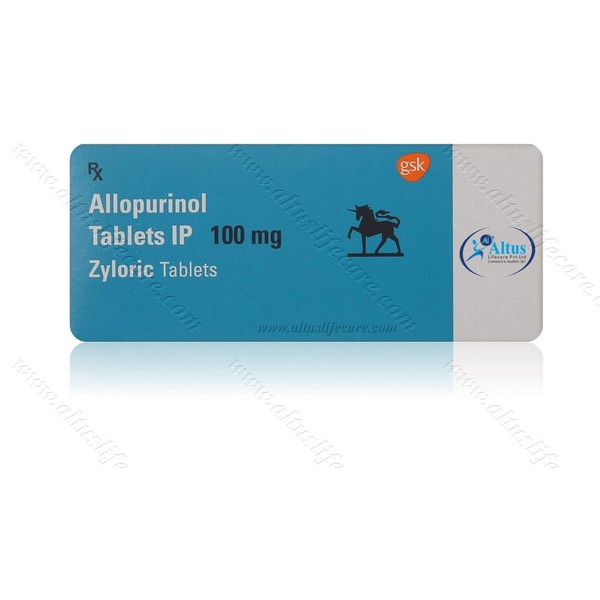
Alcohol

Pregnancy

Breast feeding

Driving
Occasionally drowsiness, dizziness or vertigo, ataxia and visual disturbances, may occur when taking. This may affect your driving ability.

Kidney

Liver
WHAT IF YOU FORGET TO TAKE ZYLORIC TABLET?
| Composition | Zyloric 300 Tablet, Zyloric 100 Tablet |
|---|---|
| Pack Size | 100 Tablet/s, 200 Tablet/s, 300 Tablet/s, 500 Tablet/s, 1000 Tablet/s |
1 review for Zyrolic Tablet (Allopurinol 100mg / 300mg)
Related products
Januvia 100mg Tablet (Sitagliptin 100mg)
From: $62.99Januvia 50mg Tablet (sitagliptin 50mg)
From: $63.90Zyrik Tablet (Allopurinol 100mg / 300mg)
From: $28.57Atorva 20 Tablet (Atorvastatin 20mg)
From: $39.29Buy Alfacal Capsule (Alfacalcidol 0.25mcg / 1mcg)
From: $38.96Atorlip Tablet (Atorvastatin 10mg / 20mg)
From: $33.77Lipicure 10 Tablet (Atorvastatin 10mg)
From: $33.83People also bought
-

Benoquin 40 Cream | Monobenzone 40%
From: $154.77 -
 From: $38.38
From: $38.38 -
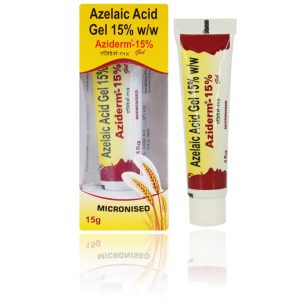 From: $40.05
From: $40.05 -

Aziderm 10% Cream 15gm | Azelaic Acid 10%
From: $39.26
Our Services
Shipping
Shipping at Discounted Price
Money Returns
Return Within 30 Days
Secure Payment
Safe & Secure Payment
Support 24/7
Contact 24 Hours Day
From: $28.57
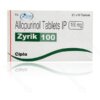
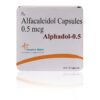
From: $38.31
- Anti-Cancer
- Armodafinil
- Bimatoprost
- Botulinum
- Dermal Fillers
- Hepatitis
- Mens-health
- Modafinil
- Naltrexone
- ANTI EMETIC
- Altus Product’s
- Anti Fungal
- Anti Malarial
- Anti Viral
- Antibiotics
- Asthma
- Beauty & Skin Care
- Cetaphil
- Chemical Peels
- Diabetes
- Hair Loss
- HCG Injections
- HIV Medicines
- Human Albumin
- Kidney / Liver Care
- Neuropathic Pain
- Pain Relief
- Pharmaceutical Products
- Pharmaceutical Vaccine
- Quit Smoking
- Thyroid Care
- Weight Loss
- Women’s Health


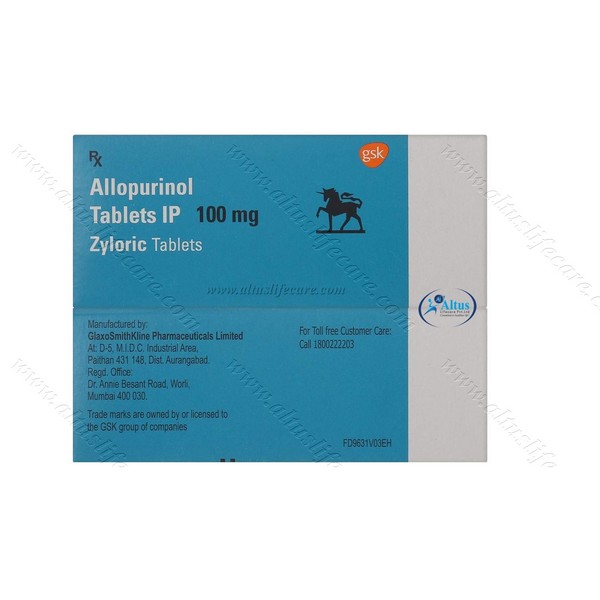
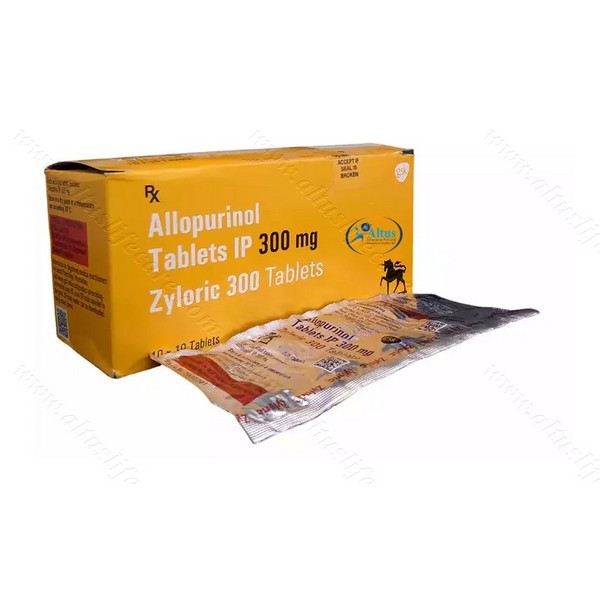
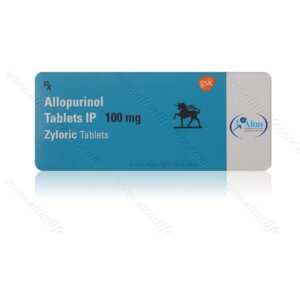
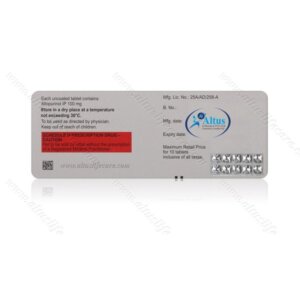
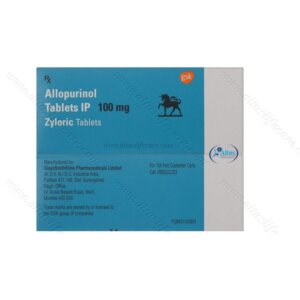
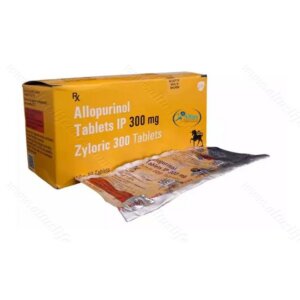
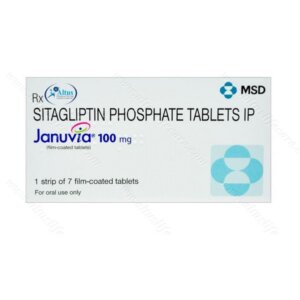
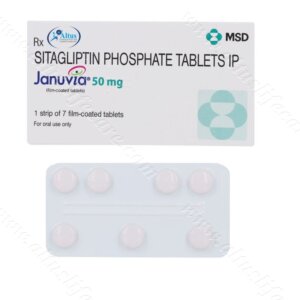
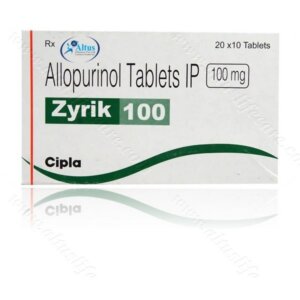
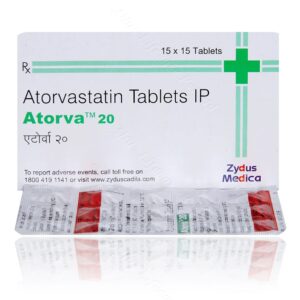

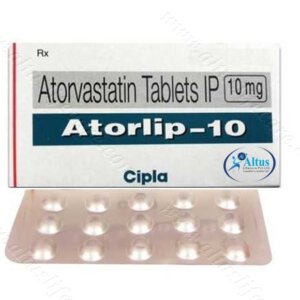
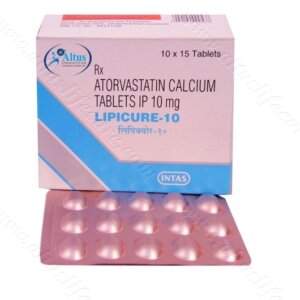


Kyleigh (verified owner) –
“Fast shipping and unbeatable product quality – a winning combination!”